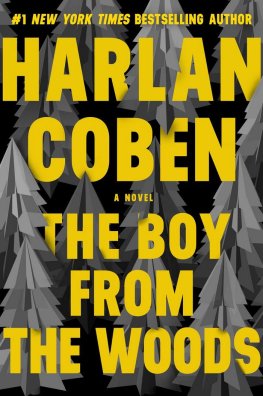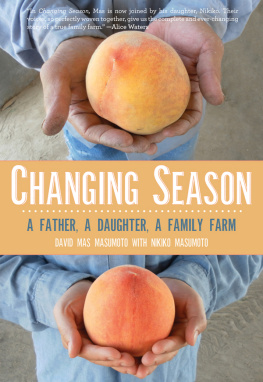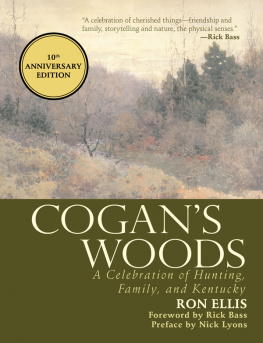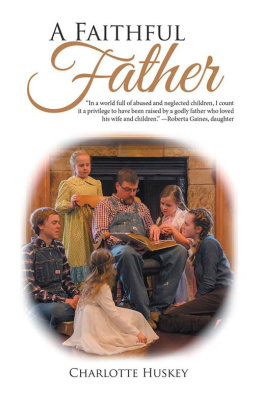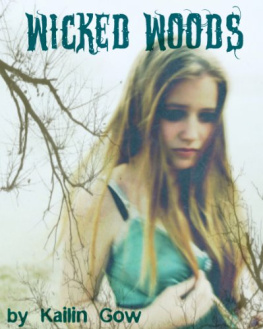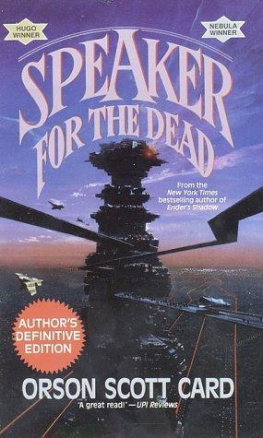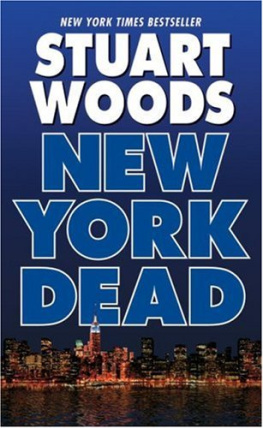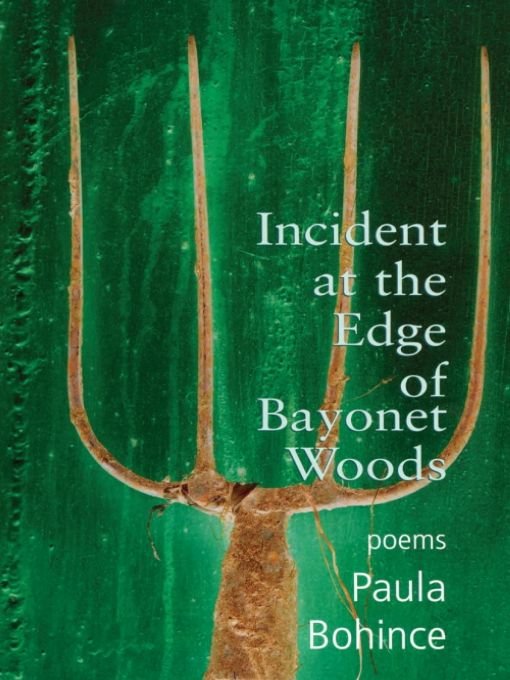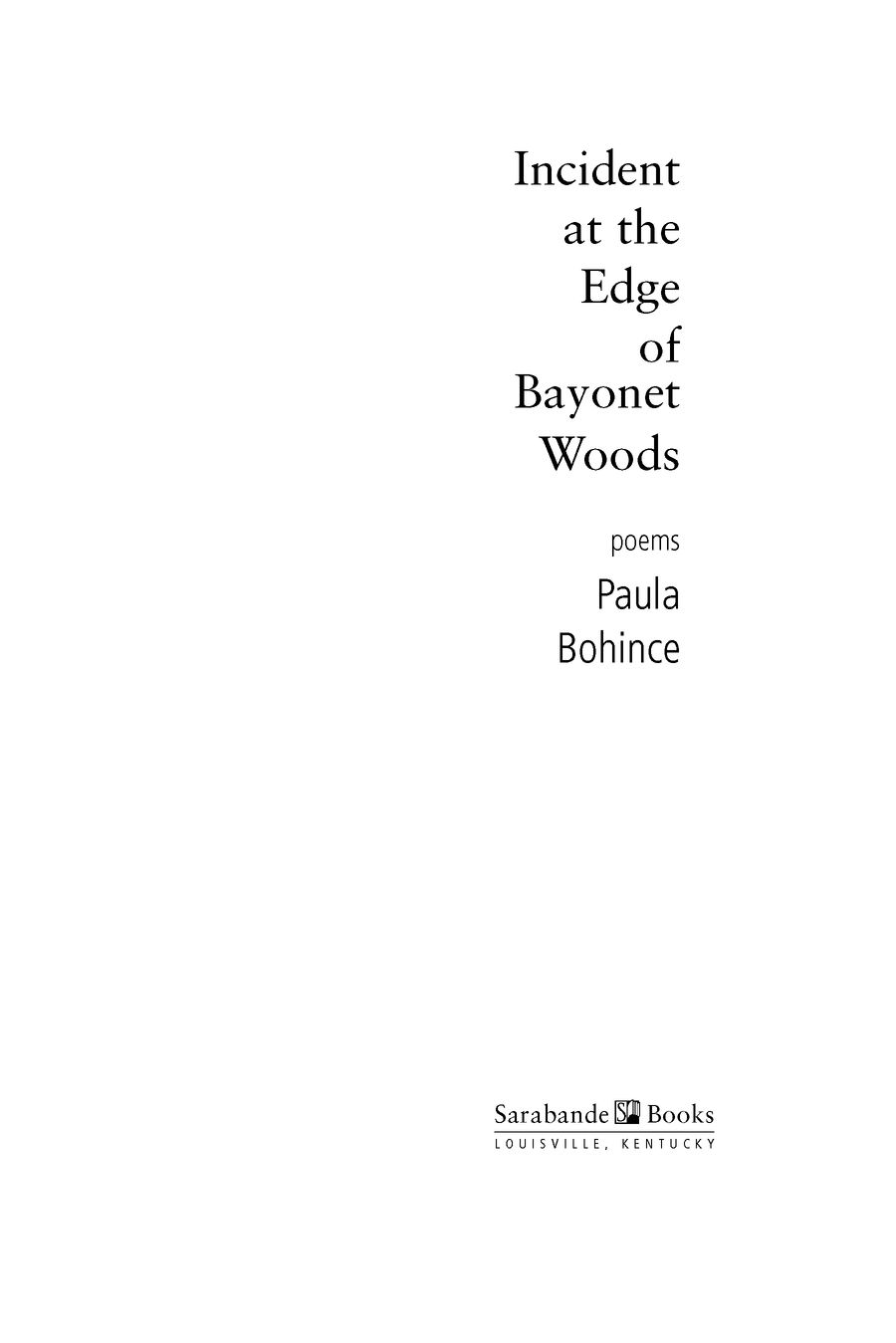Table of Contents
This project is supported in part by an award from the
National Endowment for the Arts.
The Kentucky Arts Council, a state agency in the Commerce
Cabinet, provides operational support funding for Sarabande Books with state tax dollars and federal funding from the National Endowment for the Arts, which believes that a great nation deserves great art.
ONE
Prayer
Adore me, Lord,
beneath this raw milk sky, your vision
of silvery cream comprising daylight.
Ive kept our appointment
in the barn, board after board of pine
hewn by us,
sit beside the pig we chose
for his mildness
who smiles, now, in his waste.
I abide by the chickadee
who stutters in, a little obsessed
with the mirrored chimes, her baffled image.
Our saddles, oiled on thick nails,
gleam from the walls like 3-D portraits.
Something must be wrong
or else you would answer
my father in heaven who speaks to me
when no one else will speak to me.
Landscape with Sheep and Deer
I remember the arrhythmia of their movement
across the drenched pasture,
stuttering by my father would say.
What Im trying to say is remote as a cloud
passing through woods, his face
in a window above the pen,
a clot of feeling.
This must be about him, that man who kept them
jailed and fed, who would not segregate.
In his mind, they were one thing, moving through
one place: sheep of the earth,
the cloud-like sheep, and the earth-toned deer
that belonged to the sky.
Each morning, I filled the feed drum.
Each day, I unlocked the gate, meaning I slipped
a loop from one post to another. The slack
of their limbs meant hunger; their eyes coming toward me
was the anthem I lived by.
O bookish sheep, painterly deer.
Radiant heather and tiny white tongues of clover,
soil glittering with the misery of rain.
I felt something then
in the approximate bones of a field mouse,
horse flies spinning in the trough
alert to the softening presence in the yard.
I fought nothing.
Every morning, I woke up knowing who I was,
that the fence was real, its barbed wire,
those rusted knots, salt lick
glowing like a lamp.
And though I can still see pretty hooves lifting,
feel the purchase of the nozzle
firing fresh water,
I must have dreamt it.
Werent we always cold?
We wore no wool, had no money from schemes
of shearing and selling the stuff.
And if there were deer, wouldnt they have leapt over?
How can I remember the gentle assemblage
of clucks and hums that drew them
if there were no birth cries, not one buried?
I taste the odor of straw and millet released into fall,
the cursive of my fathers burning cigarette,
muslin curtain parting.
Where Radio Fails
In static, four kit foxes turn their alert faces
toward the underbrush where they flicker,
orange as candlelight.
Only their light is insufficient,
smeared by the gauzy ruin of October rain.
Weird cables of the sycamore rattle.
And if the interference of finches on those self-same branches
sends no comfort, no wonder:
those mutants, half-born and flustered,
have no plan for winter.
Meanwhile, the snow geese are flying.
Legs folded, black straps tucked under, they are
winners, bodies clearly superior.
Still, there is a decided purity in the fox heads.
Ears tented; even in wetness
the foxes, slender and seemingly boneless, wash
every inch, each flaming hair
a lit filament.
Trespass
Fathers paroled during the drought
of seventy-eight only to vanish again, this time
taking me with him
stealing into Levis pasture for cow skeletons,
sun-stripped and patiently gleaming
between the crushed iris.
Above and around us, the electric fence
hums like God
a magnification of the dreaming gnats we awakened
discovering the lode of bones.
Collecting skull, rib, sternum, spine, the dead
rise, and we forget to be afraid,
thinking only of profit, new lives:
bird earrings from breastbone, the knife-stroke
of feather, fish candlesticks
from femur, long and tapered as sabers.
Escaping through acres where the living cattle
study us, an ache
in language-less throats, we struggle
to carry home all we can hold, glancing heavenward
with knowing, with eyes growing large
all over our bodies.
Black Lamb
Violate, coal-rubbed,
like a word emboldened in an empty book
or a pearl, dark silver, loose
in chamois, pressed into my palm one Christmas ...
His thumb upon my thumb, his eyes
on my eyes, and everything is understood: the trespass,
the lamb, the body that will come
to loathe itself,
for even in moonlight, black lamb cannot hide,
cannot fade into the chalky path
as white sheep do.
Black has a singular weight. Painted,
achieves luminous transparency, so that any pistol,
any night sea, shines plainly.
By such proof, my lamb was a phantom. Its kink
and dread reflected nothing.
Profane this landscape, my widening
pupil, drossy with grass charred and spiked short after
a fire; maggots milky in the abattoirs eaves,
black lamb deep in troublesome clover,
alone, quaking beneath dwarf pines.
Hide Out
Stiff as a fish
in a boat, I lie in the grove
of crabapples,
inhaling dirts pepper, my cheek
wet against stubble,
eye to mineral eye,
tracing the bodies of fish
onto woods floorinfinity in mud,
curves of hourglass
repeating
until I cannot hear
my breathing,
until the figure beside the barn,
aerating hay, becomes
a stranger no bigger
than a finger, his pitchfork a flimsy sliver,
harmless rhythm.
When bronze begins to erase
my drawings, pleats the elephant
leaf, when he vanishes,
I grip the girlish cheeks
of crabapple
and pound them and pound them
against ground.
I eat their mush, the grit
pummeled into it,
to coax out the sadness that waits for me
each evening
and cannot be extinguished.
Acrostic: Mementos
Miniatures from a shrunken life, safe,
examined in secret sadness: button with no dress left,
map torn in half, jagged turquoise
ending in his hand, completing the lifeline.
Nothing added for twenty years, each
treasure a snapshot of his childs face, which holds the same
old urges, remnants of that girl. He touches them,
sorry and beyond apologies.
Longlegs
Abdomen small as a mole
on a cheek, as magnetic, but mostly near
nothingtransparent limbs
stilt-walking through the cracked-open window and into


